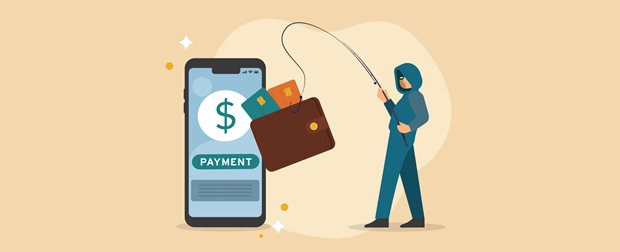Just as the COVID-19 pandemic continues to evolve, so do the many ways in which scammers try to take advantage of people like you, who are conducting your daily lives online. Scammers typically try to trick their victims by creating a sense of urgency or a threat. Knowing this, you can protect yourself by carefully reviewing emails with a skeptical eye before taking any action.
Here are some of the newer pandemic-associated scams to look out for:
Corona anti-virus
Believe it or not, you may receive an email suggesting that the sender’s special computer anti-virus software will protect you from COVID-19. Newsflash: IT WON’T!
Stimulus check
This scam promises economic relief payments to get you to disclose your personal data.
Extortion threats
A variation on this classic theme threatens to infect you and your family with COVID-19 if you don’t pay up. Your password or personal details are sometimes presented to make the threat seem credible.
COVID-19 finder
A website offers to find people near you infected with COVID-19, for a fee, but it is really designed to steal your payment information.
W.H.O. or the COVID-19 solidarity response fund
People pretending to be the WHO, the UN Foundation, or the Swiss Philanthropy Foundation contact you and ask for your credit card or banking details.
COVID home tests
This scam involves an offer of testing kits, but is really used to collect your personal data for subsequent fraudulent use.
Email scams are not new, but the specific ways in which a scammer may try to mislead you can come across as unfamiliar and may potentially seem legitimate. The best defense is always awareness. Follow our tips to avoid the new COVID-19 email scams.
- Ignore and delete emails you weren’t expecting from any sender with whom you aren’t familiar. Expand the section that shows the full sender name and email address, so you know who actually sent each email.
- Beware of emails that convey a sense of urgency. Anyone telling you that you have 24 hours to complete something, for example, is likely trying to scare you into making a mistake.
- Never give out personal information. Your bank and other institutions will never ask for your personal information via email. You should only convey such via secure methods, such as your online or mobile banking account (which require you to authenticate yourself by logging in).
- Grammatical and spelling errors are a red flag! Of course, all people can make such mistakes, but many of these scams come from outside the U.S., as is sometimes revealed in errors in the email body.
- Never click on a link in a suspicious email. And in any email, even one that appears to come from a company or person you know, carefully hover over links to see where they go before clicking on them. Avoid clicking links that seem suspicious. Always make sure you know exactly where a link goes before clicking on it.
Your best defense is knowledge. If you think an email might be legitimate, it’s always a safe bet to look up the phone number for the institution the email claims to be from and call to ask if the email you received really came from that organization. The company’s representatives will be able to authenticate for you over the phone if the email is a scam, which should prompt you to mark it as spam or junk and delete it.
For more tips on staying financially fit this year, subscribe to our newsletter using the form at the bottom of the page.







